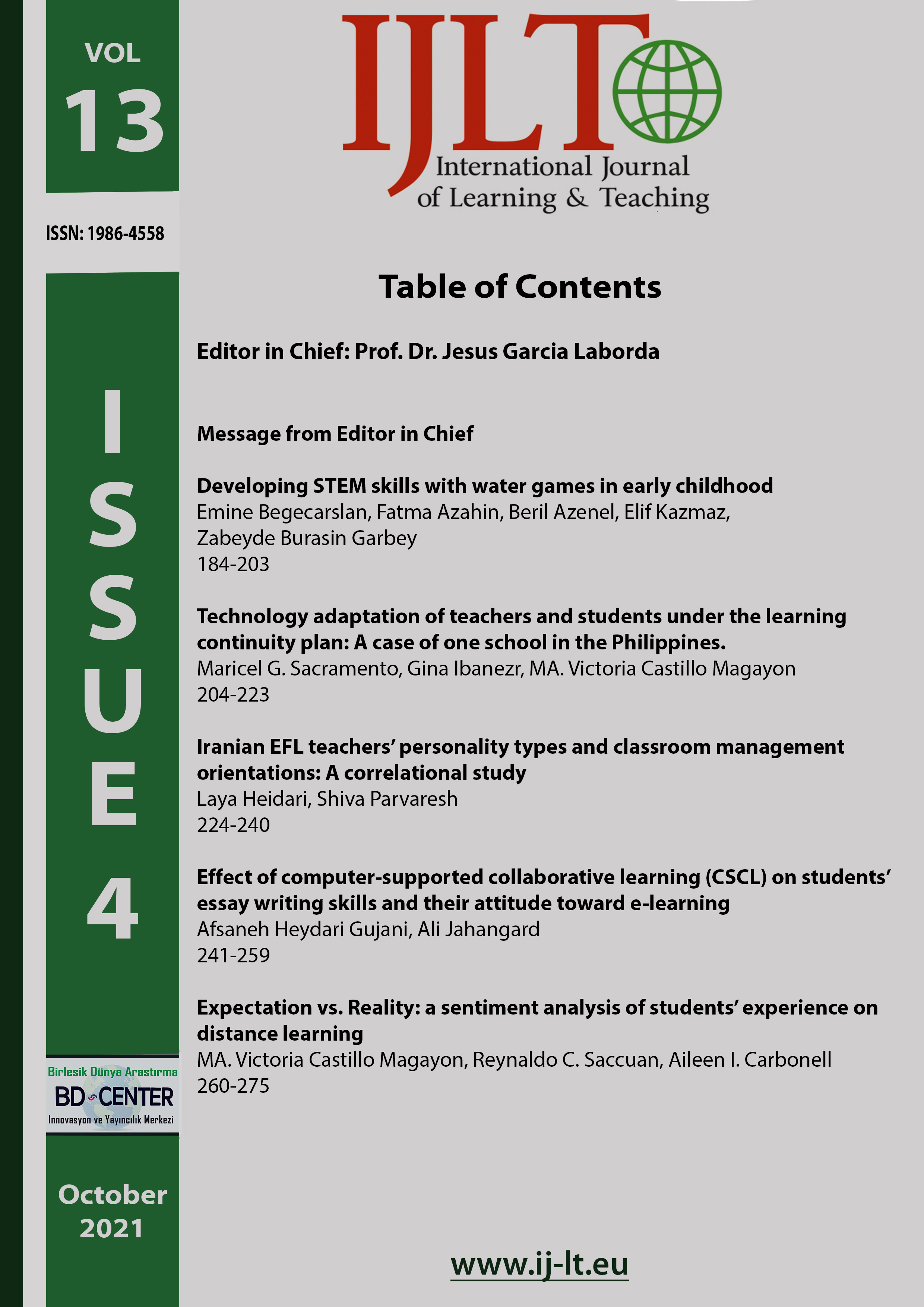Developing STEM skills with water games in early childhood
Main Article Content
Abstract
Children curiously and instinctively ask questions about how, what and why about their environment. The aim of the study is to examine the effect of early childhood water games on the development of STEM skills. The study group consisted of 21 students of fifth grade of a primary school in İstanbul, Maltepe. In the research, water games related to swimming and stinging were played from salvation from desert island, and answers from the children such as let us do submarine, rainbow sherbet and let us carry the water. After the evaluation of the research data, the effect of the water games on the development of STEM skills was determined. In a study related to swimming and stinging in early childhood, children expressed that they found the swimming and stinging experience enjoyable. This paper recommends other researchers to work on different topics and in different age groups within the scope of the contribution of the games to the development of STEM skills.
Keywords: STEM, games, early childhood, Skills, water.
Downloads
Article Details

This work is licensed under a Creative Commons Attribution 4.0 International License.
Authors who publish with this journal agree to the following terms:
- Authors retain copyright and grant the journal right of first publication with the work simultaneously licensed under a Creative Commons Attribution License that allows others to share the work with an acknowledgement of the work's authorship and initial publication in this journal.
- Authors are able to enter into separate, additional contractual arrangements for the non-exclusive distribution of the journal's published version of the work (e.g., post it to an institutional repository or publish it in a book), with an acknowledgement of its initial publication in this journal.
- Authors are permitted and encouraged to post their work online (e.g., in institutional repositories or on their website) prior to and during the submission process, as it can lead to productive exchanges, as well as earlier and greater citation of published work (SeeThe Effect of Open Access).
